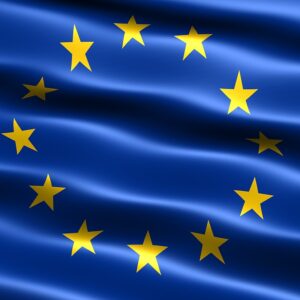A new age of empires has begun, which isn’t based on the sovereignty of nations but between big continental blocs in competition with each other economically, technologically and militarily — according to one of Europe’s most seasoned politicians.
Indeed, this global conflict has already begun in the view of Guy Verhofstadt, formerly Belgium’s prime minister for a decade and now the most fluent, not to say distinctive, voice in the European Parliament.
“Ultimately, we will not escape an existential fight between autocracy and democracy,” he said. Verhofstadt claims the 27-member European Union is “unprepared for this new age of confrontation.”
He contrasts the EU’s response to the Ukraine war unfavorably with that of the United States. “Compared to the massive and immediate U.S. reaction, the EU has been slow and weak.
“The delivery of arms to Ukraine remains modest. On sanctions, the different packages come as fast as they are minimal.”
Of the 6,000 people who are the backbone of Putin’s war machine, he notes only 1,262 have so far been sanctioned by European governments.
After the 9/11 terrorist attacks on the United States in 2001, it was days before Verhofstadt, as European Council president, could get through to George W. Bush because the White House switchboard had no idea who the Belgian might be.
This lanky, eccentric-looking 71-year-old with his trademark big spectacles and old-fashioned middle parting is an unmistakable figure these days. He’s notable for his lack of flannel or affectation. After a recent news conference, he hooked a leg over the side of his chair and drank beer straight from the bottle while he held forth: your off-hand professor.
Verhofstadt remains an unstoppable carrier of inconvenient truths — which is why other politicians prefer to ignore him if they can.
While he’s perhaps the EU’s most articulate supporter and burdened with numerous prizes and medals for many decades of political work on its behalf, this liberal is also highly critical of it. In particular, he damns the EU’s “obsolete institutional system” whereby a single vote, whether from a large or small country, is sufficient to block any decision. “The current tensions between Germany and France add to that capacity to act,” he says. “Moreover, in the present crisis, the EU is taking only reactive measures.”
The European supply of weapons to Ukraine and training of troops from that besieged country “while useful, falls far short of the dramatic shift we need,” in Verhofstadt’s view.
“EU members combined spend four times Russia’s military budget. Together we spend roughly the same as China — and we get much, much less in return.” He wants to see a European Defense Community that will act as the European pillar of NATO “in order to counter the new, threatening era which began on February 24th.”
He adds, “A geopolitical Europe is only possible if we’re ready to redefine our politics and reform our institutions. If all this is not possible with 27 countries, then we must proceed with a coalition of the willing.”
Returning to his empire theme, Verhofstadt says there will be four of them in the future: China, India, Russia and America, defining their global interests and almost certainly conflicting between them.
It’s a grim vision of further wars, power obsession and prioritizing security over human rights — what has been called “the return of history.”
Verhofstadt insists, “This doesn’t mean the EU has to become an empire. On the contrary. But we want to defend a Europe in which our children and grandchildren can survive in this new world.”

